
When I decided to attend a public university, as a good, second-generation Asian American, I carefully considered the academic prestige and the financial cost. Having attended public schools in Southfield and Novi, Michigan, and having to constantly explain why I did not go to parties or compete on Sabbath, I did long to attend one of our Adventist institutions. However, what tipped the balance were the needs of my local church—the Detroit Korean Church and my desire to have the opportunity to share our beautiful Adventist message with the 40,000 students at the University of Michigan. Ann Arbor was not my Tarshish. On the contrary, as a high-schooler having just read the Great Controversy, I was inspired to be a present-day Waldensian. But I vastly underestimated what I would be up against intellectually and spiritually.
As one of 500 students in the lecture hall taking organic chemistry, I quickly felt insignificant. In my small group study sessions, I felt I had little to contribute intellectually. Thinking God had led me here to contribute spiritually, I joined a non-denominational Christian fellowship. There I met some of the most sincere and dedicated Christians who ended up teaching me more about the gospel, grace and salvation by faith than I taught them about either the health or the sanctuary message. It was humbling. And I felt very alone.
It was at that point when the Lord started to work. A group of students from the Ann Arbor and Ypsilanti churches found each other and started having weekly Bible studies. Then someone found me, and I started getting emails from Adventist Students for Christ. There were about seven of us who met for Bible study and prayer meetings. According to the school’s registrar’s office, there were more self-identified Adventist students, but they probably did not want to be found.
The following year, CAMPUS was launched and I found my home. We were young people who were passionate about Christ and eager to study God’s Word together, student missionaries who dedicated a year of their lives to serve this secular campus through Bible study, health seminars and massage therapy. Our numbers grew and more students from the local churches enrolled which made our newly minted church, CAMPUS HOPE, look like the United Nations. The passion, kinship and joy was real. We were no longer merely a part of the Seventh-day Adventist Church. It was our church. The church was no longer a building. We turned any room in the student union or a mobile home into a sanctuary for God. The Sabbath was a delight as the student missionaries prepared for us the most humble but tasty haystacks I have ever had.
Just as college is supposed to prepare young people for the real world, CAMPUS taught me how to lovingly share the gospel truth through friendship evangelism, Bible study and the health message. We learned to run a church on a secular campus and create a diverse and dynamic body of like-minded young people where seekers were welcome into our ragtag bunch. As a result, I have witnessed the power of the Holy Spirit transform the lives of those who were seeking the present truth through God’s Word.
It was at CAMPUS where I personally witnessed the spark that kindled the vision for the Generation of Youth for Christ (GYC). But, just as important as that movement, CAMPUS equipped us young people to become leaders in our local churches. With the support of local churches and church leaders like Pastor Dan Hall, Randy Skeete and Dan Vis (fastmissions.com) who believed in a small group of students at the University of Michigan, we were able to reach a generation of young people, inspire them to take ownership of their church, and preach the Three Angels’ messages to the whole world. This is true discipleship. Now, many of us who have become professionals are commissioned to pay it forward as we support and equip the next generation through CAMPUS and our local church.
We would that there were strong young [persons], rooted and grounded in the faith, who had such a living connection with God that they could, if so counseled by our [leaders], enter the higher colleges in our land, where they would have a wider field for study and observation. Association with different classes of minds, an acquaintance with the workings and results of popular methods of education, and a knowledge of theology as taught in the leading institutions of learning would be of great value to such workers, preparing them to labor for the educated classes and to meet the prevailing errors of our time. Such was the method pursued by the ancient Waldenses; and, if true to God, our youth, like theirs, might do a good work, even while gaining their education, in sowing the seeds of truth in other minds. (5T 583.1)
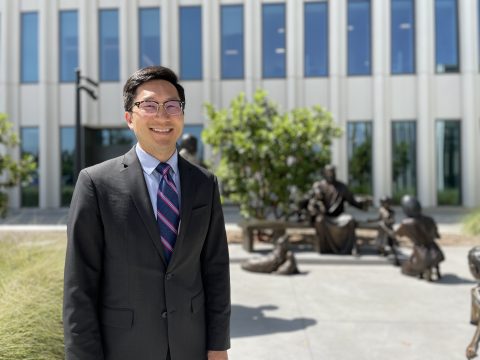
It has been nearly twenty years since my first visit to Ann Arbor, but I can still call it up in my memory like a video on my phone. March 17, observed by many as St. Patrick’s Day, was unusually warm that year. Even though my parents and I arrived on campus early in the morning, there was no need for a jacket as we started touring the University of Michigan campus where I had been recently accepted. The first thing I saw as I stepped out of the car at seven in the morning was a group of young men with tables set up outside their fraternity house, passing clear cups with green liquid inside. “Beer?” they offered as we walked by, and I turned and looked at my parents in disbelief. “Would I really consider going to school here? What was I even doing here?”
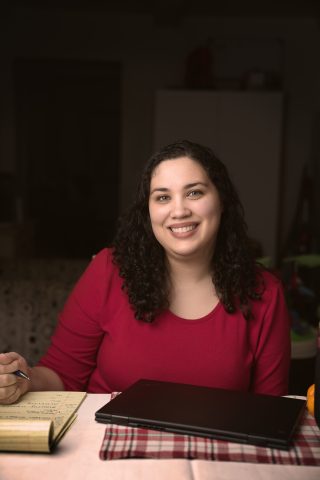
I thought I was the least likely person I knew to attend a public university. My parents met at Andrews University. I was born while they taught at Broadview Academy, and we moved back to Andrews when I was three. I had been in the Adventist education system for my entire life by that point; I did not see why that should change for my undergraduate studies.
But a scholarship offer led to prayer and soul-searching—and a second trip to Ann Arbor.
On another beautiful spring day, this time we skipped the official tours and just roamed the campus. And we stayed for Sabbath. I knew I would not be able to make the decision I believed God was calling me to unless I could find a spiritual group on campus that I could call home. And that is exactly what I found that morning.
Among other things, my years involved in campus ministry taught me to be a missionary wherever I was, whether hanging out with friends in the dorm, in office hours with a grad assistant, or writing a paper for class. It also illustrated for me how important living the truth is before ever trying to teach the truth to others. The strongest argument in favor of the gospel is a loving and lovable Christian, and one who excels to boot. It taught me how to seek God, to be led and taught of Him in my daily activities as well as in my academic studies (and now my professional life). Through this ministry, my skills were honed in approaching divisive and controversial issues with tact, wisdom and humility. I was equipped to be a leader in the church and on campus.
And it showed me that the gospel is the best foundation for unity among diverse groups of people. My junior year, I stepped into the hall outside of the room where our group was about to start our mid-week Bible study. Often, members would bring dinner with them and eat together in the room before the meeting began. In the hall, I bumped into a friend who was not a part of our group, or any other church on campus that I was aware of. He had a job on campus that provided resources for minority students and encouraged diversity and inclusion. He peeked into the room I had just exited and saw everyone else was there. His eyes nearly fell out of his head as he saw Asian, Black, White and Latino students hanging out, eating together and genuinely enjoying each other’s company.
“What group is this?!” he asked me, clearly wondering how we had achieved what so many university programs in diversity had been unable to do. My heart soared as I was able to tell him about our group, how we served other students on campus and what brought us together was our love for God.
Making the decision to leave where I was comfortable to go to where I knew God was calling me was a scary one but, to this day, it is without a doubt one of the best decisions I have ever made. Campus ministry helped support me in my decision to stay in the Adventist church while in college and provided me with the skills necessary to be a valuable church member, thriving professional and involved citizen of the world.
When I enrolled at Indiana University Bloomington (IUB) for the first time in 2006, I had a simple plan. I was going to focus completely on my academic goals. I was getting started in the doctoral program and knew absolutely no one in the area other than my department chair and a couple of my professors. I had spent several years attending and working at an Adventist university, and knew how time-consuming it was to be involved in non-academic organizations. Don’t get me wrong. I wasn’t giving up my Christian values or practices. I just wanted to go to church regularly and engage where I could on Sabbaths only. My ambition was to devote all my energies on my academic program.
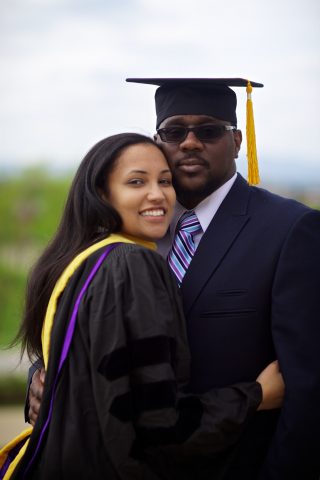
I faced several problems in my first week. I had no furniture, no kitchen utensils, and no bed. Figuring out the prices for things, the location of things and, most importantly, how to get there and back was a challenge all by itself. So, on that first Sabbath morning, I got up with the intention of going to the closest Adventist church to enjoy Sabbath school, listen to a sermon, and return home. I caught the campus bus, got dropped off at the point closest to the church, and walked for 15 minutes in 80-degree weather to the church. Thankfully I got there when there was no usher at the door. That allowed me to just sneak in the back door, select a Sabbath school class, and sit as close to the back as possible.
One of the elders was teaching the Sabbath school lesson at the time. He quickly identified me as a visitor and asked my name. By the end of Sabbath school, several persons had introduced themselves and asked if I were a student at the university. Almost all of them had the same question after I confirmed that I was a student: “Have you met Abby? She attends the university and there is a campus ministries group there.” It was as if the entire church was involved in campus ministries. I was impressed.
By the end of the day, I had been introduced to Abby and multiple persons who also attended the university. There was an active campus ministries group and they met at various times for Bible study and socialization. They emphasized that, along with the Bible study, there would be food from the various cultures that were a part of the group (Brazilian, Korean, Ghanian, West Indian and more). I have always loved a good Bible study and so that caught my attention.
It wasn’t long before I was actively involved in campus ministries. It grew to become one of the most meaningful parts of my graduate school experience. I saw people’s lives change for the better and worked with others to support friends who went through some very difficult life experiences. Higher education can be hard on morals, values and attitudes. Having a community of people who are experiencing it with you and actively praying for your success can make it that much more manageable. Of greater significance is the fact that it provided a safe space where we could figure out how to minister to our fellow students who didn’t have the same kind of support. We built strong, lifelong friendships as a result.
After a few years at IUB, I moved to Virginia to be closer to my now wife, Verleyne. Campus ministries was so much a part of me by that time that I was happy to help with the growth and development of a ministry at James Madison University (JMU). The fact that Verleyne was actively developing a campus ministries group there allowed us to be in ministry together. I learned a lot from the successes and failures at IUB and shared what I learned with the team there. I also joined a campus ministries group called ANEW which supports campus ministries across the Atlantic Region. I maintained my student status for a year longer than I needed to for the simple reason that I wanted to continue to serve in campus ministries.
Presently, I use every opportunity I can to share my experience of campus ministries with the next generation. One young person whom I have mentored for a few years has gone on to be a leader of a campus ministries group in North Carolina. And so, the cycle continues. I am thankful that God has other plans for my life.
Whilst fully entrenched in my freshman year at the University of Michigan, I have a distinct memory of sitting on the couch in my dorm room, staring at a 16-inch TV perched on an outdated chest on the other side of the narrow room. What I was watching is not crucial to the thought that came to me next. I was watching the political debate for president of the United States in 1996. Suddenly I had an overwhelming sense of confusion, as if suddenly waking up in a strange place. I thought to myself, “What is going on?” “What is life about?” “What am I doing here?” “Am I ‘here’?” “What is reality” “What am I doing with my life?” “Is this all there is?”
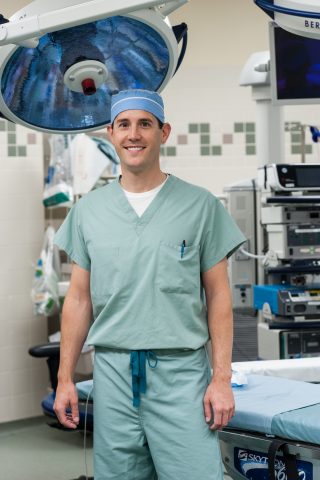
Maybe you remember thinking those thoughts at some point in your life. I had been raised a nominal Seventh-day Adventist and had some pretty hilarious contradictions in my life, a patchwork of the sacred and profane.
These glaring contradictions, even to me who’d taken more of the world—with its cacophony of dissonant sounds—than of the godly wise, and I strongly desired some ordered thinking. So, I set out on a journey. I decided I would search out and learn about all the most popular world religions. The truth must be there somewhere, right?! Since I started out as a self-identified and baptized Seventh-day Adventist, I figured I’d make a full circle and give my Adventist roots the last word. What I didn’t realize is that this journey made me come to some shocking and improbable realizations but, first, I had to suspend any belief in God.
It was a good thing I was at one of the largest and most prestigious public universities in the world. The opportunity to explore was almost limitless, especially with the birth of the Internet as we know it around that time; books were also plentiful to an overwhelming degree. This path even led me to declaring Religious Studies as my major. In fact, I would end up graduating with a bachelor’s degree in the subject matter, even though I ended up attending medical school at Loma Linda University.
Back to my search through Buddhism, Hinduism, Islam, Judaism, Atheism, Humanism, Shintoism, Taoism; you get the idea. I explored each of these religions thoroughly, immersing myself in the texts and, as available, attending services or religious rite ceremonies. The main vehicle for learning was my classes, which I couldn’t get enough of! However, as I attempted to suspend judgment until my research was complete, I couldn’t help but peeking prematurely at the mental data points as they came in: man’s reliance on himself for salvation, religious rites that had to be done just so, incantations that if done slightly incorrectly would be negated according to the gods. I also noticed remarkably consistent elements across all these traditions—prayer, theodicy, otherness, discipline, priesthoods, reverence for a deity, proper conduct, etc. Could it be that these were imprinted into man’s very being, not coincidentally?!
As I finally came around to my search into Christianity, I could see a huge and glaring difference—and pardon any simplification, Christianity was the only religious practice with a loving, concerned, caring God who saves us through His sacrifice. Just as the Son of Man did not come to be served, but to serve, and to give His life a ransom for many (Matthew 20:28).
Wow, when that really hit me, I just sat back in my chair astounded.
After that, I wanted to be a Daniel in Babylon, a Waldensian at university!
Around that time, we started a student group on campus, we also had a vibrant Bible study supported by a youth pastor at the Ann Arbor Church. What really solidified this budding spiritual revival was the start of the CAMPUS program. Through CAMPUS, missionaries came to the area to support, encourage and grow our fledgling group. We then multiplied by combining white, black and Korean groups, and flourished in our brotherhood.
Where would I be without public campus ministries? A confluence of education, living on your own, and influence of peers has led many astray. In hindsight, how many public school students made shipwrecks of their faith for lack of support? I would have certainly been one of them if I had not come full circle into the arms of a warm and loving church in Ann Arbor.
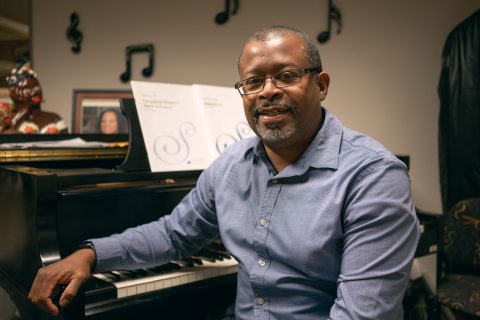
From the moment you meet James Lee III, two characteristics are abundantly clear. First, he loves the Adventist message. Secondly, he loves good quality music. Lee was born in St. Joseph, Michigan, grew up in Benton Harbor, attended Edith B. Garret Adventist School and Andrews Academy. His family were members of the Highland Avenue Church. In his words, “I was always surrounded by the Adventist community.” The strong faith of his parents and local church family helped him to be grounded in his personal walk with God from an early age.
While studying piano performance at Andrews University, he considered transferring to schools that would further challenge his current piano skills. After receiving acceptance letters from two schools, a friend recommended he choose the invitation from the University of Michigan. This would end his fourteen-year stint in an all-Adventist environment but would open the door to share the Adventist message that he loved in a most urgent mission field: the secular university campus.
Even before he set foot on campus, he was connected to the Ypsilanti Church. Sabbath can often be a lonely place for students, so the church had an active student ministry that provided a place for them to eat and fellowship each Sabbath. He readily continued building friendships with fellow Adventist students each Sabbath and became a regular, active member, playing piano or participating in the Sabbath School discussion time.
However, Lee’s academic career at the University of Michigan did not end with his bachelor’s or master’s degrees. “At that time, in 2001, I knew that the Composition Department only accepted two students into the doctoral program. I had such a strong desire to be accepted into the program that I consistently prayed that I would be accepted. The year I was admitted into the program, the Composition Department accepted six of us.”
During his graduate studies, the students began a church on campus called Campus HOPE. Lee was asked to be the president, and prayerfully accepted. As a doctoral student, it is very easy to make excuses to not be involved in ministry on campus due to the academic rigors of the program, but James knew that, like Daniel, he had an opportunity to reach those in his high sphere of influence. The excellence that attended all his work attracted both professor and peer. He would often invite those from the music school to play special music at the Campus HOPE Church.
Lee had to be intentional with his time management. Along with the demands of studying music theory, composing and researching, he also led a weekly Bible study on Daniel and Revelation, attended the student Tuesday Bible studies, sundown worship on Friday, chaired leadership meetings on Sunday, organized church, and attended Sabbath outreach singing at the University of Michigan hospital. He also was the first director of music for the former General Youth Conference (now Generation of Youth for Christ (GYC)).
When asked how he managed everything, he said, “Managing the time from Sunday to Friday afternoon was key.” When students give God their lives and seek to bring Him honor in every aspect of their lives, He has a way of organizing their day-to-day life to optimize success for this life and eternity. “The most important graduation is the one from mortality to immortality at the second coming of Christ. It is important to keep that in perspective of our academic pursuits. All the classes and degrees are temporal.”
In 2005, Lee prepared for the doctoral defense of his composition, “Beyond Rivers of Vision.” The piece was written in light of the Three Angels’ messages. During his dissertation, the professors asked many questions about his Adventist faith and the thoughts behind what inspired the powerful composition. The professors on his defense gave him a high pass which is rare.
“Those who have the spirit of God, who have the truth wrought into their very being, should be encouraged to enter colleges, and live the truth, as Daniel and Paul did” (3SM p. 233). Lee understood God’s mission for him as a student at a public university. Like Daniel, he purposed in his heart to be faithful to that call. Lee continues to compose music rich with the Adventist message and regularly gives Bible studies to his students who ask.
Alanna Rodriguez is assistant to the director of Center for Adventist Ministry to Public Campus Students.
Photo credit: Pieter Damsteegt